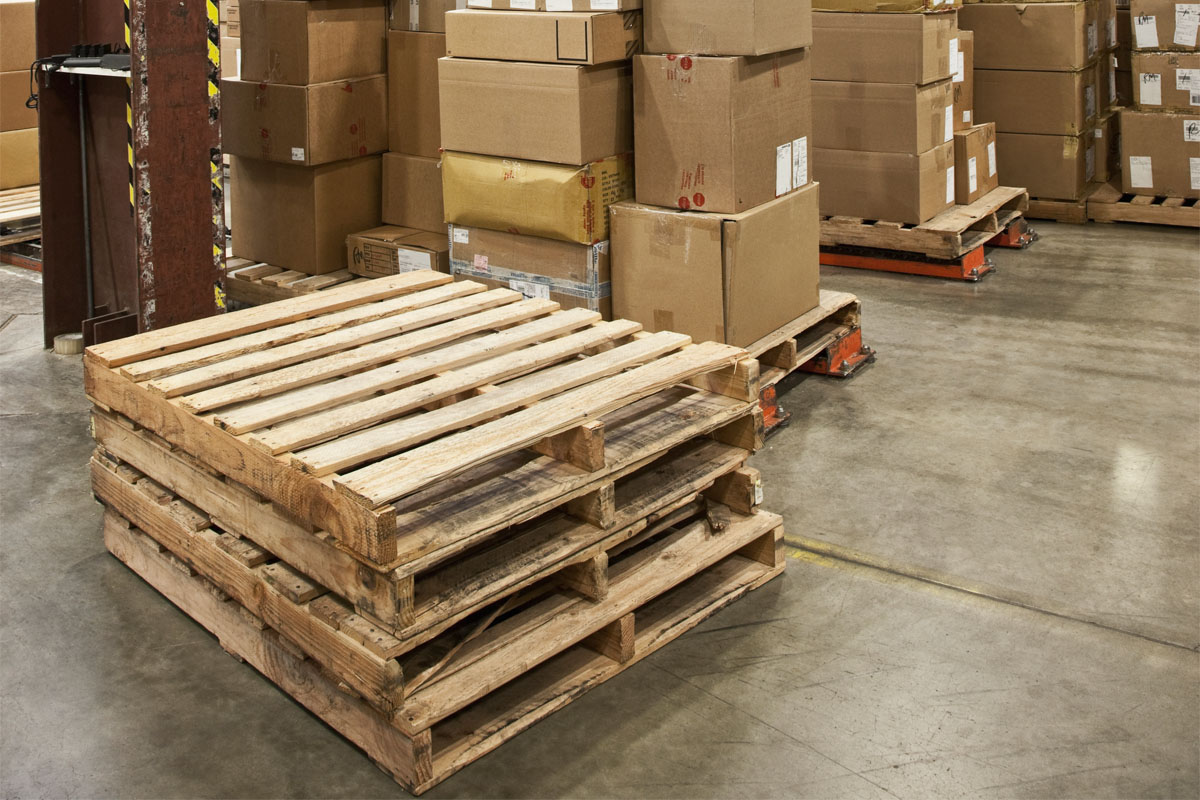Unlocking Value: Transforming Wood Pallets into Business Gold

In today's rapidly evolving business landscape, the sustainability movement has prompted companies to seek innovative ways to reduce waste and maximize resources. Among the often-overlooked assets in this quest are wood pallets, which play a crucial role in logistics and supply chain management. Instead of being discarded after a single use, these versatile wooden structures can be transformed into valuable resources, presenting a unique opportunity for businesses to unlock significant value.
Wood pallets, commonly used for shipping and storage, are now gaining attention for their potential in various secondary markets. From repurposing them into furniture and home decor items to utilizing their material for construction projects, the possibilities are both creative and profitable. By embracing the full lifecycle of wood pallets, businesses not only contribute to sustainability efforts but also tap into a growing demand for eco-friendly products, effectively turning what was once considered waste into business gold.
The Hidden Potential of Wood Pallets
Wood pallets are often seen as mere shipping tools, discarded once their primary purpose is fulfilled. However, this perspective overlooks the significant value that can be derived from these versatile materials. With an increasing emphasis on sustainability and recycling, businesses can tap into the potential of wood pallets in innovative ways, transforming them from waste into profit.
Reclaimed wood pallets can be repurposed for a variety of applications, ranging from furniture and home decor to landscaping and construction materials. Small businesses and artisans have begun to recognize the charm and durability of repurposed pallets, leading to a surge in demand for unique, handcrafted items. By creatively recycling wood pallets, companies not only reduce waste but also cater to consumers seeking sustainable and eco-friendly products.
Moreover, local markets for reclaimed wood pallets are emerging, allowing businesses to buy and sell pallets directly, fostering a circular economy. This shift not only offers an additional revenue stream for manufacturers and logistics companies but also encourages collaboration within communities. As awareness of the potential for wood pallets spreads, businesses can unlock new opportunities by integrating these materials into their operations and product offerings.
Innovative Uses for Reclaimed Pallets
Reclaimed wood pallets offer a versatile solution for businesses looking to be environmentally conscious while maximizing their resources. One of the most popular uses is in furniture design. Small startups and artisans are turning these sturdy wooden structures into chairs, tables, and even decorative wall art. By creatively disassembling and reconstructing pallets, they can produce unique, rustic pieces that appeal to customers seeking sustainable options and one-of-a-kind styles.
Beyond furniture, reclaimed pallets are making an impact in landscaping and gardening. Entrepreneurs have begun utilizing pallets as vertical gardens, allowing city dwellers to maximize limited space for growing herbs and vegetables. This innovative approach not only promotes sustainable gardening practices but also provides an attractive aesthetic to urban landscapes. Businesses can participate in this trend by offering pallet gardening kits or workshops on how to create these installations.

In retail, reclaimed pallets have found a new life as display units and signage. Many businesses are embracing the rustic charm of pallets to create eye-catching product displays that enhance the shopping experience. By incorporating reclaimed pallets into their store design, retailers can not only cut costs but also demonstrate a commitment to sustainability, attracting eco-conscious consumers who appreciate thoughtful design.
Strategies for Sustainable Business Transformation
To successfully transform wood pallets into a sustainable business opportunity, companies must start by reevaluating their supply chain processes. Identifying local sources for quality pallets not only reduces transportation costs but also promotes community partnerships. Establishing relationships with local manufacturers and suppliers can ensure a steady flow of materials while supporting local economies. This strategic sourcing allows businesses to lower their carbon footprint and promote sustainable practices.
Investing in innovative recycling and repurposing techniques is another key strategy for enhancing the economic potential of wood pallets . Businesses can explore different avenues, such as converting old pallets into furniture, garden beds, or decorative art. By developing creative solutions for pallet reuse, companies not only diversify their product offerings but also attract eco-conscious consumers who value sustainability. This approach can result in unique branding and a loyal customer base that appreciates environmental responsibility.
Finally, educating employees and customers about the benefits of sustainable practices can significantly impact a company's transformation journey. Workshops and training sessions can empower staff to be advocates for sustainability, fostering a culture that prioritizes eco-friendly operations. Simultaneously, transparent communication with customers about sourcing and recycling efforts builds trust and encourages purchasing decisions that align with their values. By actively engaging all stakeholders, businesses can create a solid foundation for long-term success while maximizing the value of wood pallets.